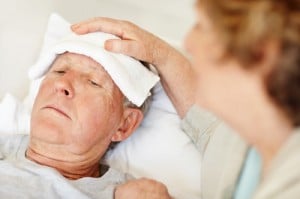 Elder abuse is a serious concern for families searching for a nursing home for a loved one. Careful nursing home selection can help reduce the risk of abuse and neglect. The tips listed can assist in assuring that your family member will not suffer abuse or neglect while in the care of others.
Elder abuse is a serious concern for families searching for a nursing home for a loved one. Careful nursing home selection can help reduce the risk of abuse and neglect. The tips listed can assist in assuring that your family member will not suffer abuse or neglect while in the care of others.
Activities
A nursing home that cares about the comfort and happiness of residents will offer regular activities for amusement and socialization. Common activities include bingo, board games, movie nights and day trips. Some nursing homes even make it a point to take individual resident’s interests and hobbies into account when scheduling activities.
Dining Options
Nursing homes should offer a varied selection of nutritious foods for meals and snacks. Special dietary needs should be taken into consideration when meals are scheduled to give options to residents with needs related to medical issues such as diabetes or high blood pressure.
Trustworthy Employees
Ask the nursing home about their policies regarding the hiring of new employees. Employees should be required to complete a background check and have no criminal record. Any employee that completes medical tasks should be properly trained as a medical professional.
A Homey Feeling
Residents often have trouble transitioning to a nursing home because it does not have the amenities and familiar surroundings that are associated with home. Seek out a nursing home that allows residents to bring items from home to decorate their rooms. If a loved one making the transition to a nursing home has a pet, ask the facility whether personal pets are allowed to stay with residents.
Adequate Communication
A respectable nursing home should encourage regular visits from family members and should not have overly-restrictive rules on visitation. Family members should be invited and encouraged to keep an open communication with the facility to discuss the progress, comfort and happiness of their loved one.
Anyone that suspects beyond a reasonable doubt that a family member has been abused or neglected while under nursing home care should contact a New York attorney. A Brown Chiari, LLP attorney in Buffalo can discuss the legal recourse associated with elder abuse and help families seek compensation for any damages suffered.
 Elder abuse is a serious concern for families searching for a nursing home for a loved one. Careful nursing home selection can help reduce the risk of abuse and neglect. The tips listed can assist in assuring that your family member will not suffer abuse or neglect while in the care of others.
Elder abuse is a serious concern for families searching for a nursing home for a loved one. Careful nursing home selection can help reduce the risk of abuse and neglect. The tips listed can assist in assuring that your family member will not suffer abuse or neglect while in the care of others.